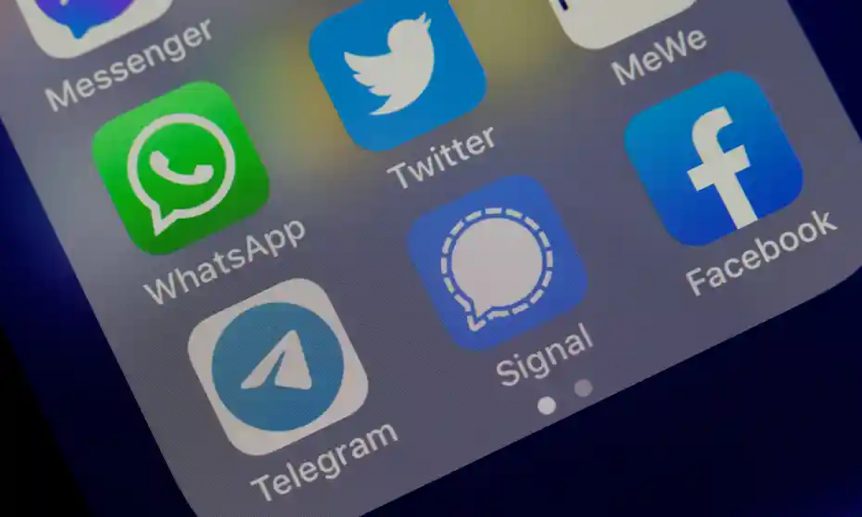Respected Chairpersons and Staff at Facebook, Twitter and Telegram,
Front Line Defenders, an international human right organisation which works to provide hands-on practical support to human rights defenders at risk through its digital protection program, and the undersigned Libyan, regional and international civil society organisations urge you to take immediate action to help end an ongoing online defamation campaign targeting human rights defenders in Libya which is putting their lives in real danger. We specifically ask you to remove videos and all the hate speech and other defamatory content circulating on your platforms which Libyan authorities are using to defame peaceful human rights defenders and which has tangible harmful consequences on the lives of the people involved including physical violence, arbitrary detention and prosecution, intimidation, and discriminatory treatment. .
Furthermore, we urge you to conduct proper human rights due diligence to ensure that you are operating in line with your human rights duties and commitments and are not facilitating or contributing to human rights violations, in a Libyan context of near-total impunity where incidents of torture, ill-treatment, unlawful killings and other grave violations are widespread.
As documented by the Cairo Institute for Human Rights Studies (CIHRS), between November 2021 and March 2022, the Libyan Internal Security Services (ISS) affiliated with the Presidential Council of the Government of National Unity (GNU)1 arrested at least seven young men – activists, human rights defenders and individuals who had been active online discussing human rights concerns, including gender equality, freedom of belief, cultural rights and the rights of internally displaced people, migrants and refugee rights.
Following their detention, ISS published disturbing “confession” videos , in which the young men confess to being “atheist”, “secular”, “feminist”, or to having collaborated with international organisations to spread “immoral” values within Libyan society.
The content and appearance of these men in the videos indicate that they were most likely obtained under duress and that these individuals are being subjected to ill-treatment, possibly torture. The videos were widely shared on social media and have sparked hate speech, defamation and incitement to violence against a number of human rights defenders, feminists and other civil rights activists in the country. A list of names has been circulated with calls to arrest them and judge them under the Sharia’ (Islamic Law) that would for such cases apply the death penalty.
These recent incidents are part of a wider attack against freedom of speech and civil society work. The Tripoli Civil Society Commission, which is affiliated to the Government of National Accord (GNA)[1] has led an online defamation campaign against Libyan civil society labeling its members as foreign or morally corrupt agents perverting Libyan society. Repeated violations against journalists, bloggers and individuals expressing their opinions online has further undermined freedom of expression. Between September and December 2021, at least 16 bloggers, journalists and media professionals were either arbitrarily arrested or disappeared.
Under the United Nations Guiding Principles on Business and Human Rights (UNGPs), and the commitments you have made to user safety and human rights, you have a responsibility to “avoid causing or contributing to adverse human rights impacts through their own activities,” as well as to “seek to prevent or mitigate adverse human rights impacts that are directly linked to their operations, products or services by their business relationships, even if they have not contributed to those impacts.” Companies are thus expected to undertake adequate due diligence “in order to identify, prevent, mitigate and account for how they address their adverse human rights impacts.[2]
As social media companies, you have a responsibility to ensure that you are not contributing to a violent and dangerous campaign, utilizing your platforms to incite targeted violence against human rights defenders in Libya and place their lives at serious risk. It is of paramount urgency that Facebook, Twitter and Telegram immediately remove these videos and take the necessary steps to ensure the safety of your users in Libya.
Our organisations stand ready to assist with identifying the videos in question and the accounts on which they are hosted/shared.
Signatures:
- Front Line Defenders (FLD)
- Gulf Centre for Human Rights (GCHR)
- Iraqi Network for Social Media (INSM)
- ARTICLE19
- Access Now
- Pen Iraq
- Global Voices
- Cairo Institute for Human rights Studies
- Independent Organization for Human Rights
- Youth for Tawergha
- Aman organization against racial discrimination
- Defender Center for Human Rights
- Libya Organization for legal aid
- Belady Foundation
- Aswat Libya Network
- Libyan Center for Freedom of the Press
- Adala for All
[1] 1The Civil Society Commission is currently divided between two institutions that issue conflicting decisions. The Board of Directors of the Commission is formed by the decision of the interim government in 2016 and has 27 branches to which commit to the rule of the interim government in the east, except the Tripoli branch. On August 8, 2018, a decision was issued by the interim government to remove the chairman of the Civil Society Commission, Abeer Amnina, from her post, and to appoint Ali Al-Obeidi instead. This was after the Presidential Council issued decision No. 160 of 2018 on August 2, to form the Board of Directors of the Commission.
[2] 2UN Guiding Principle (UNGP) 13
Share this Post

